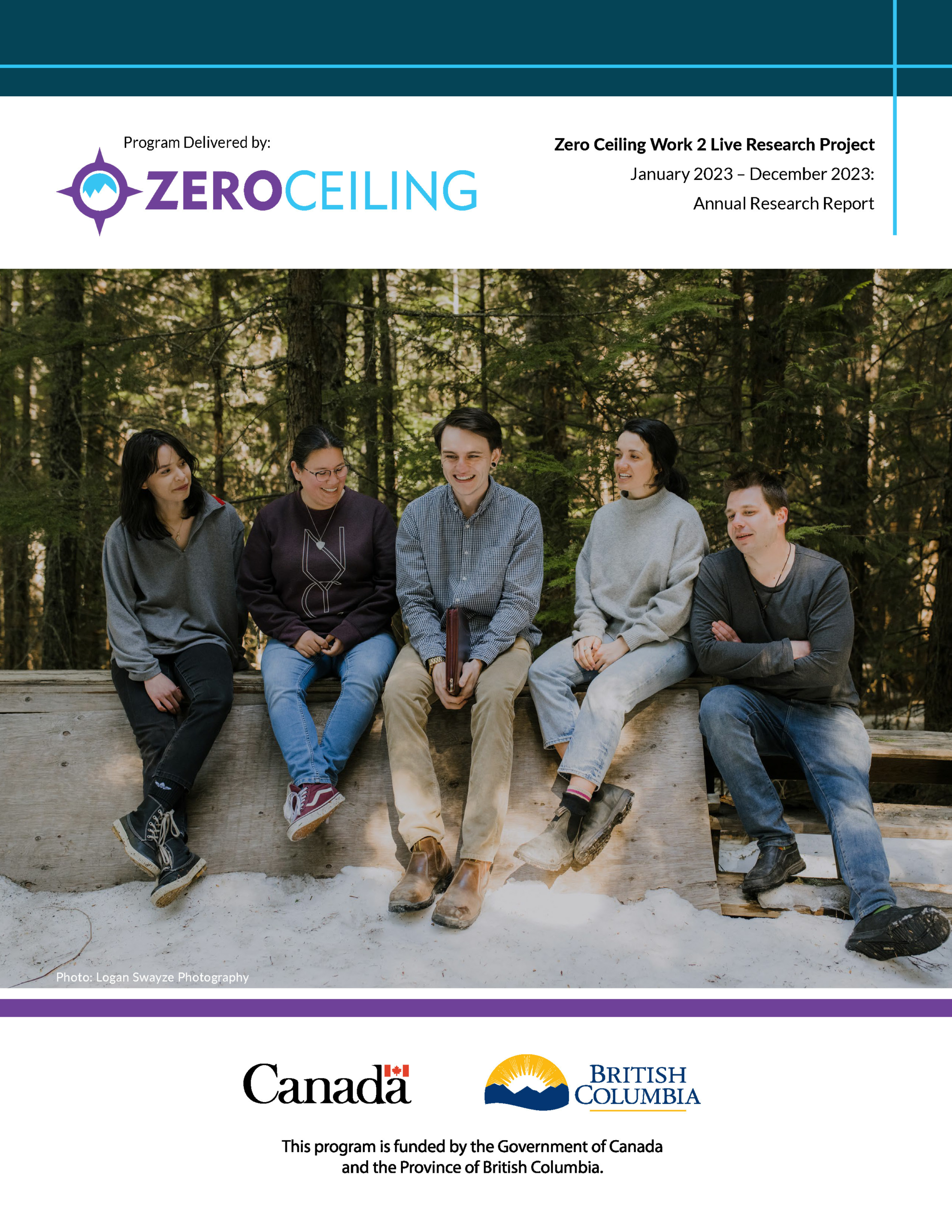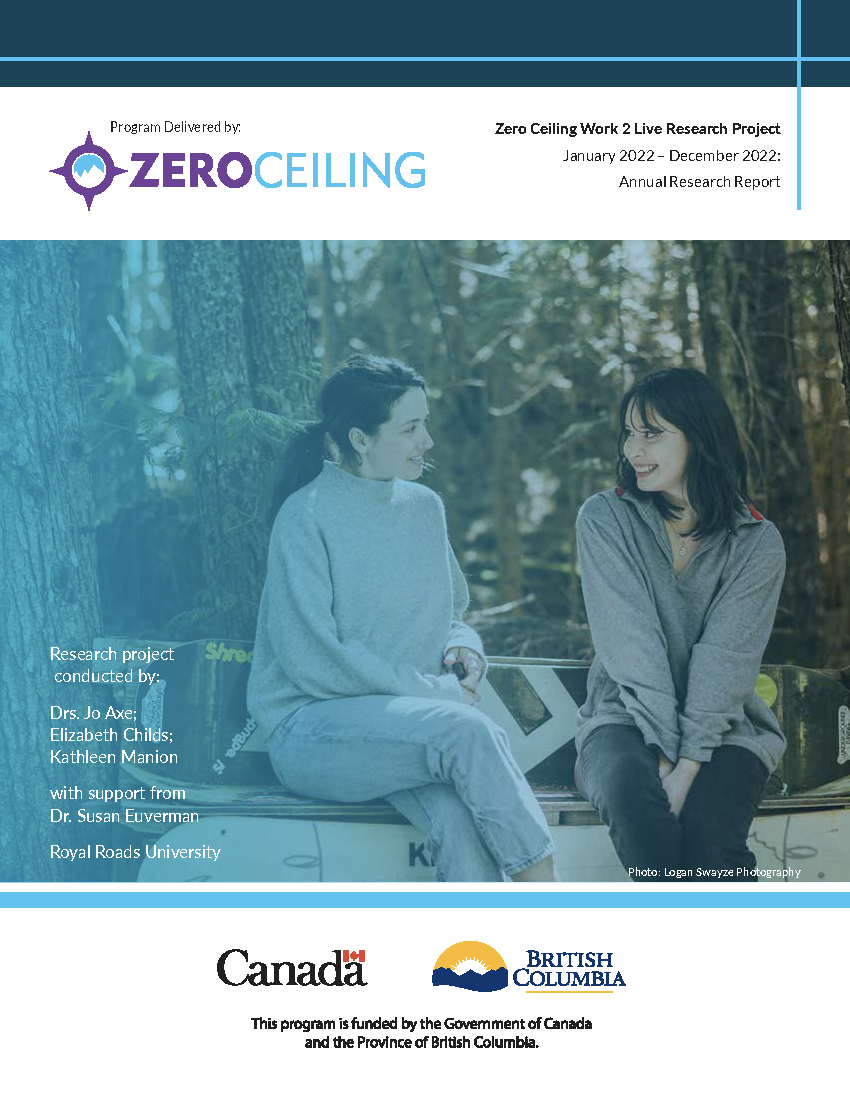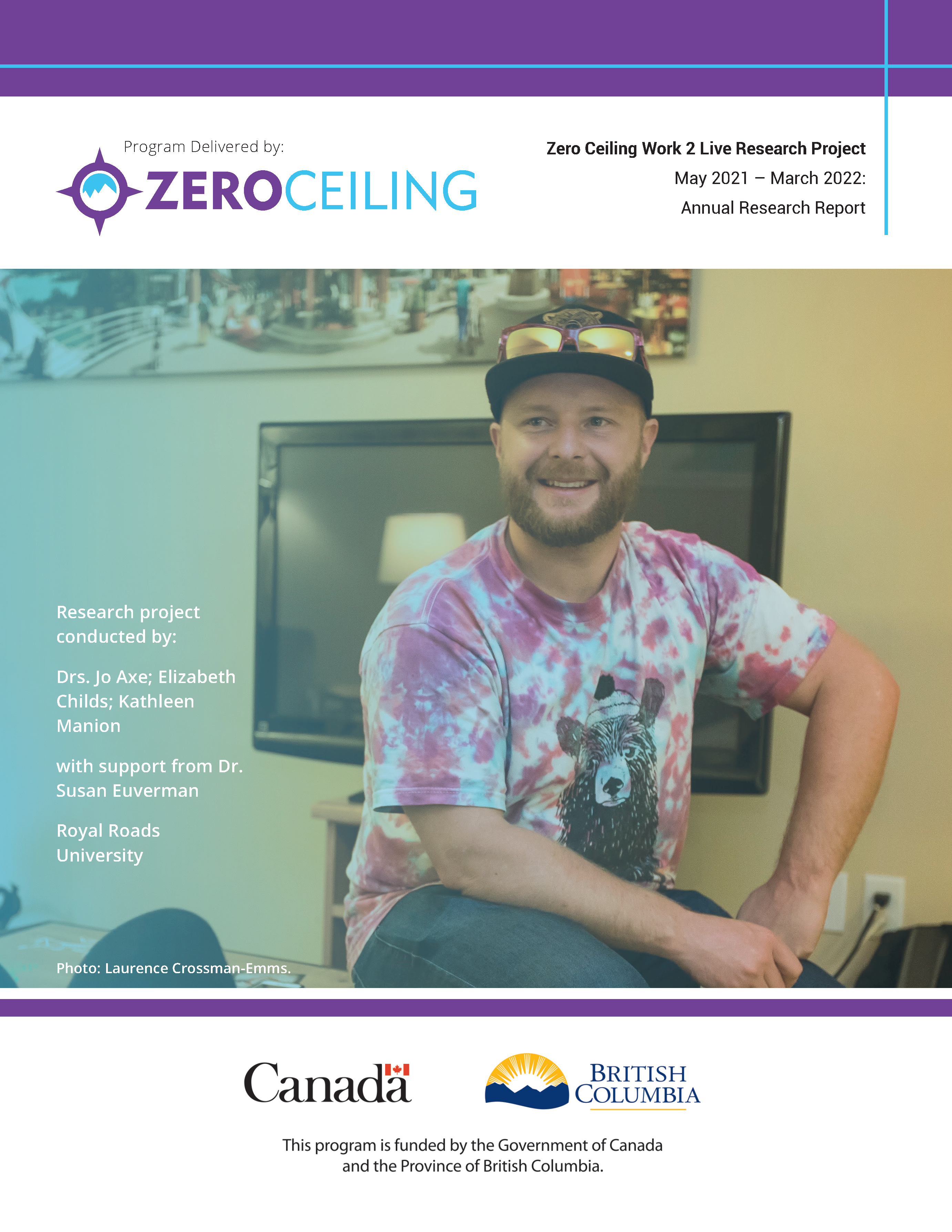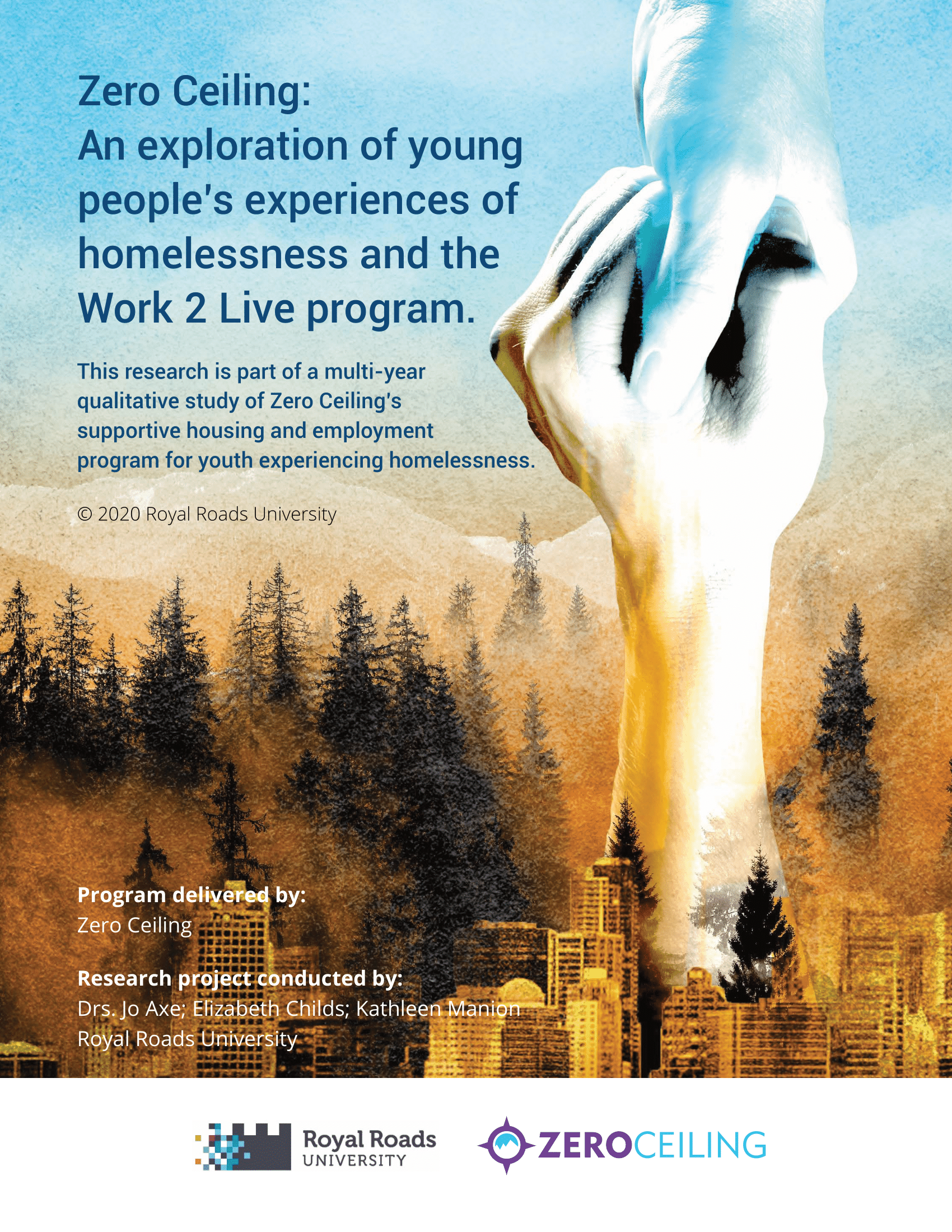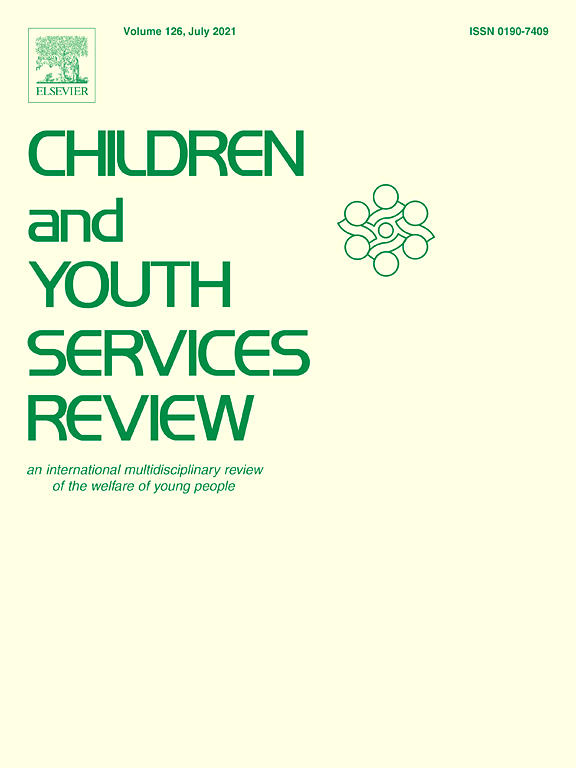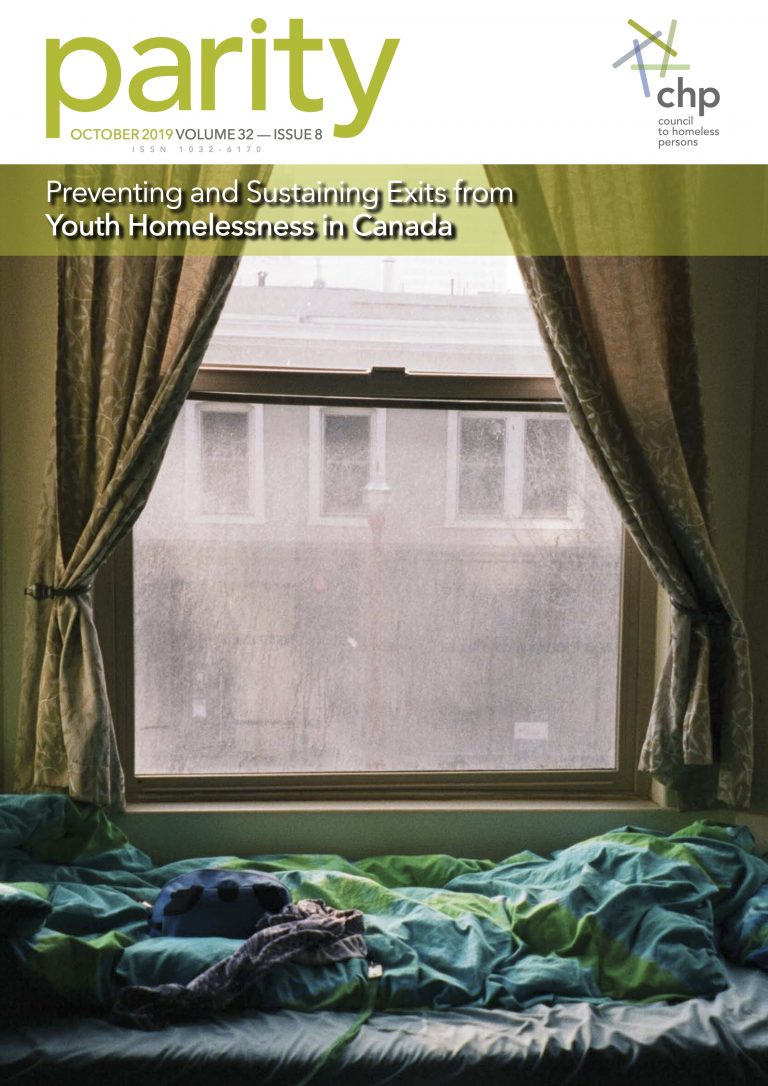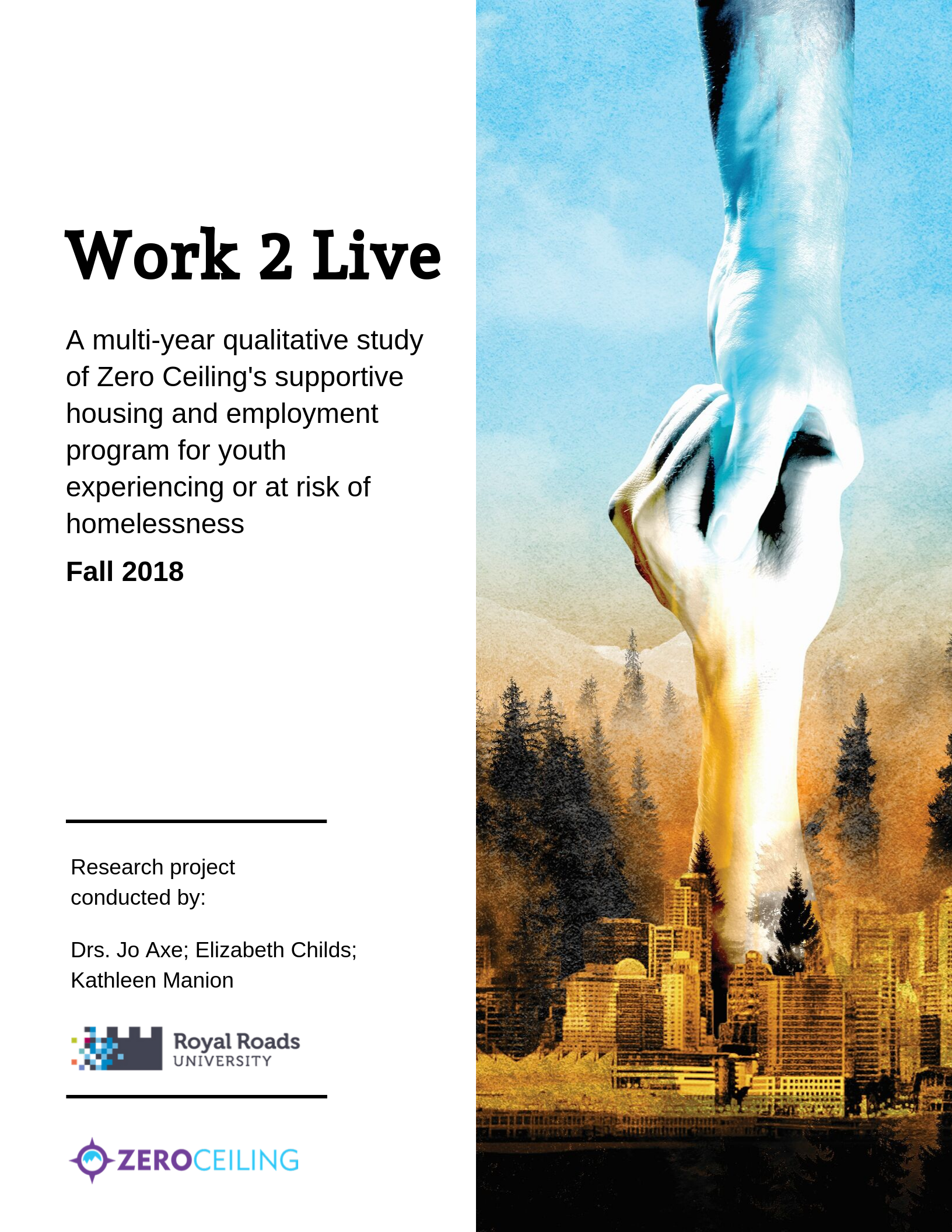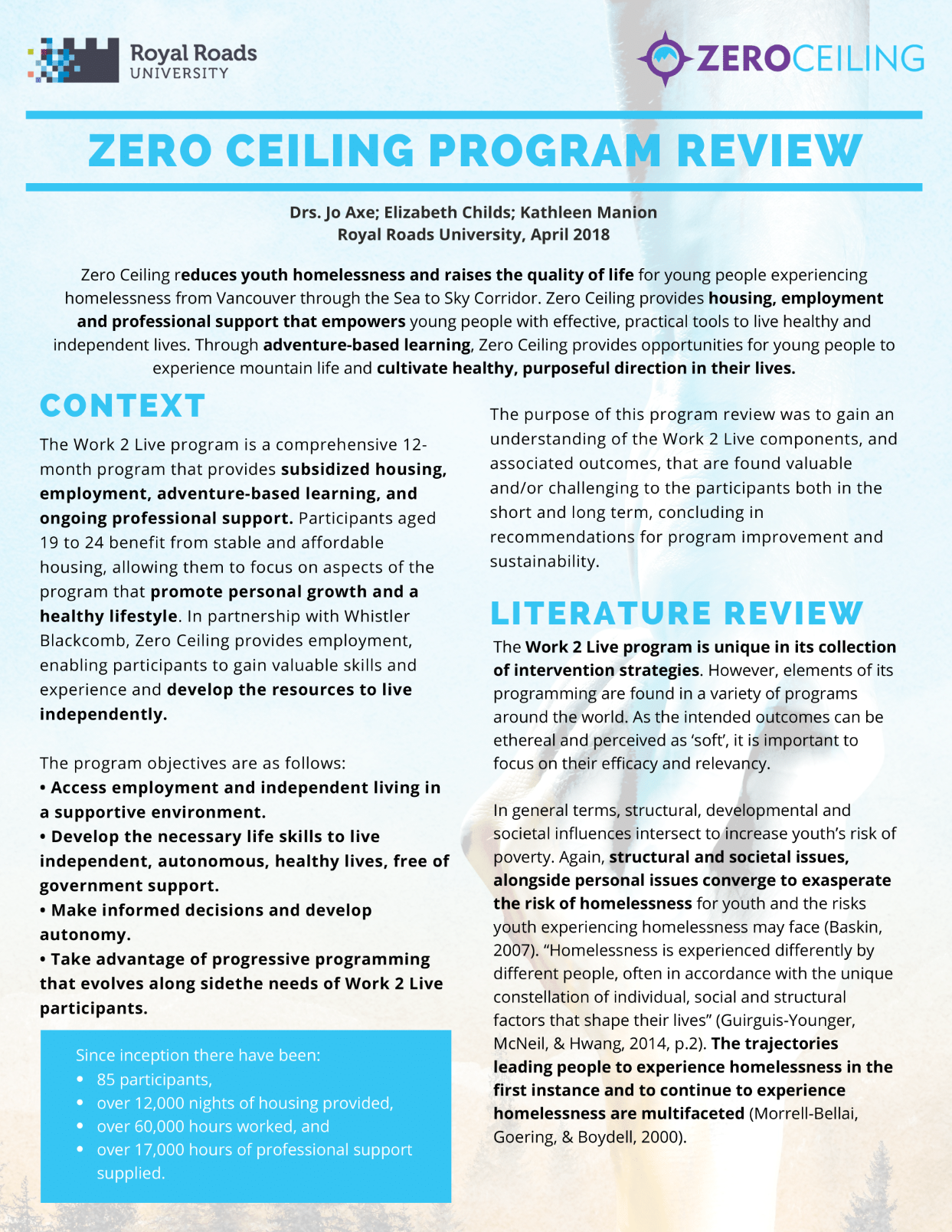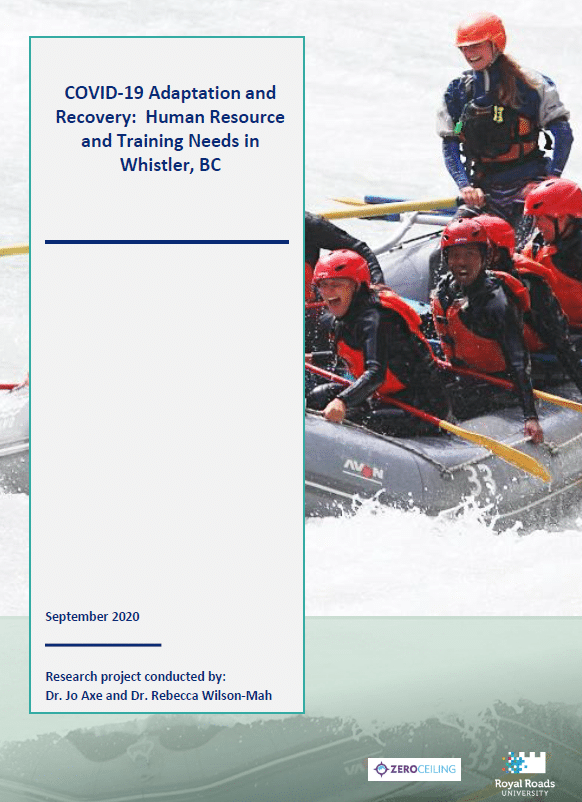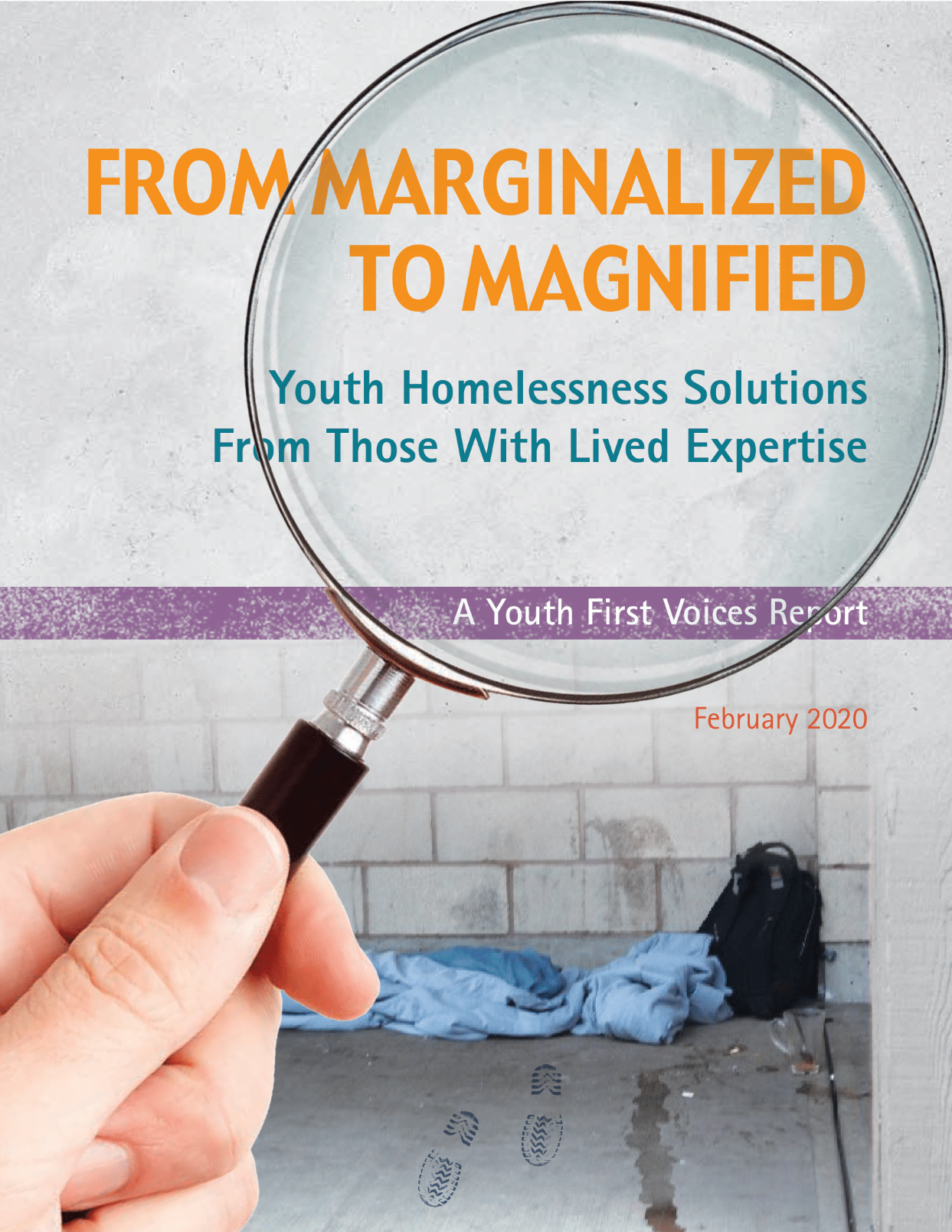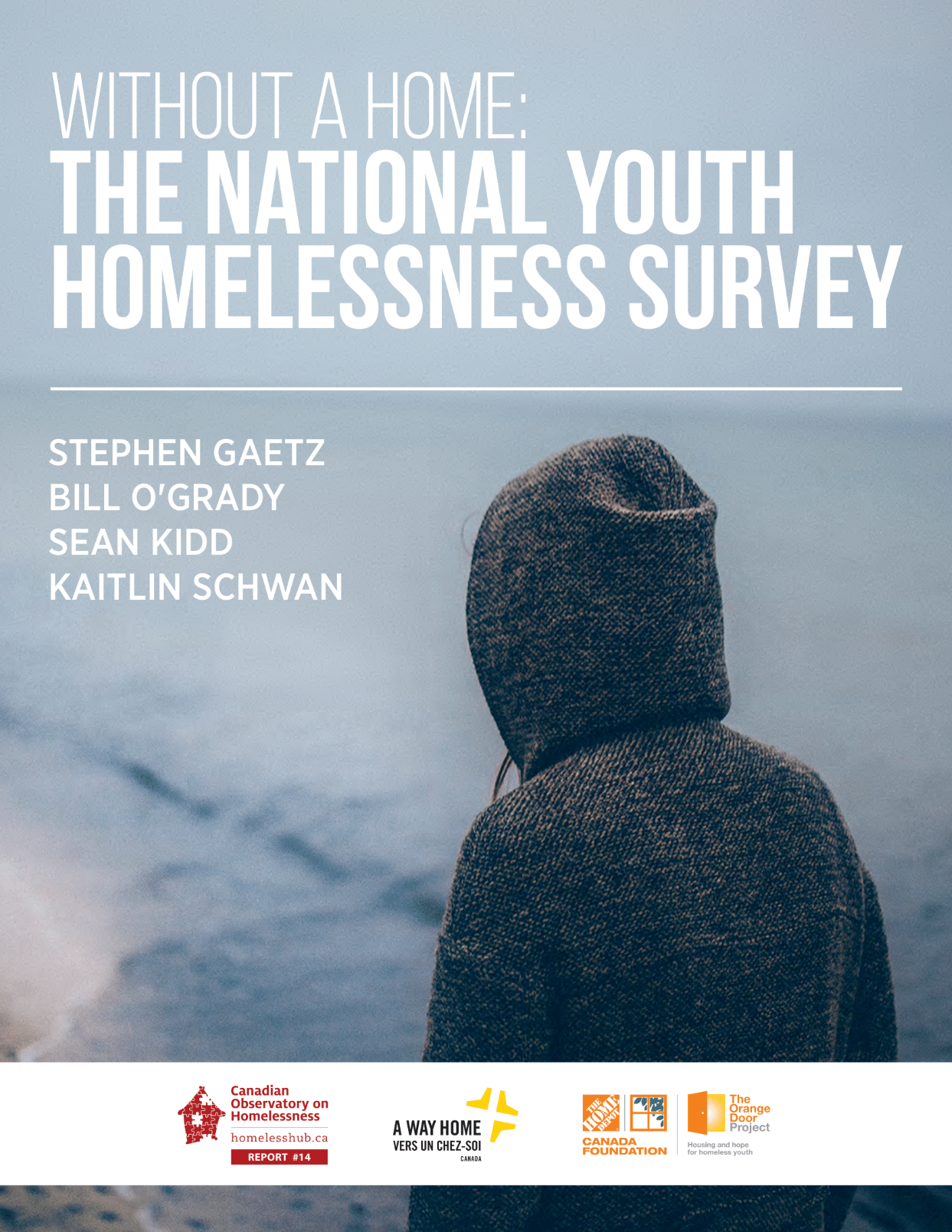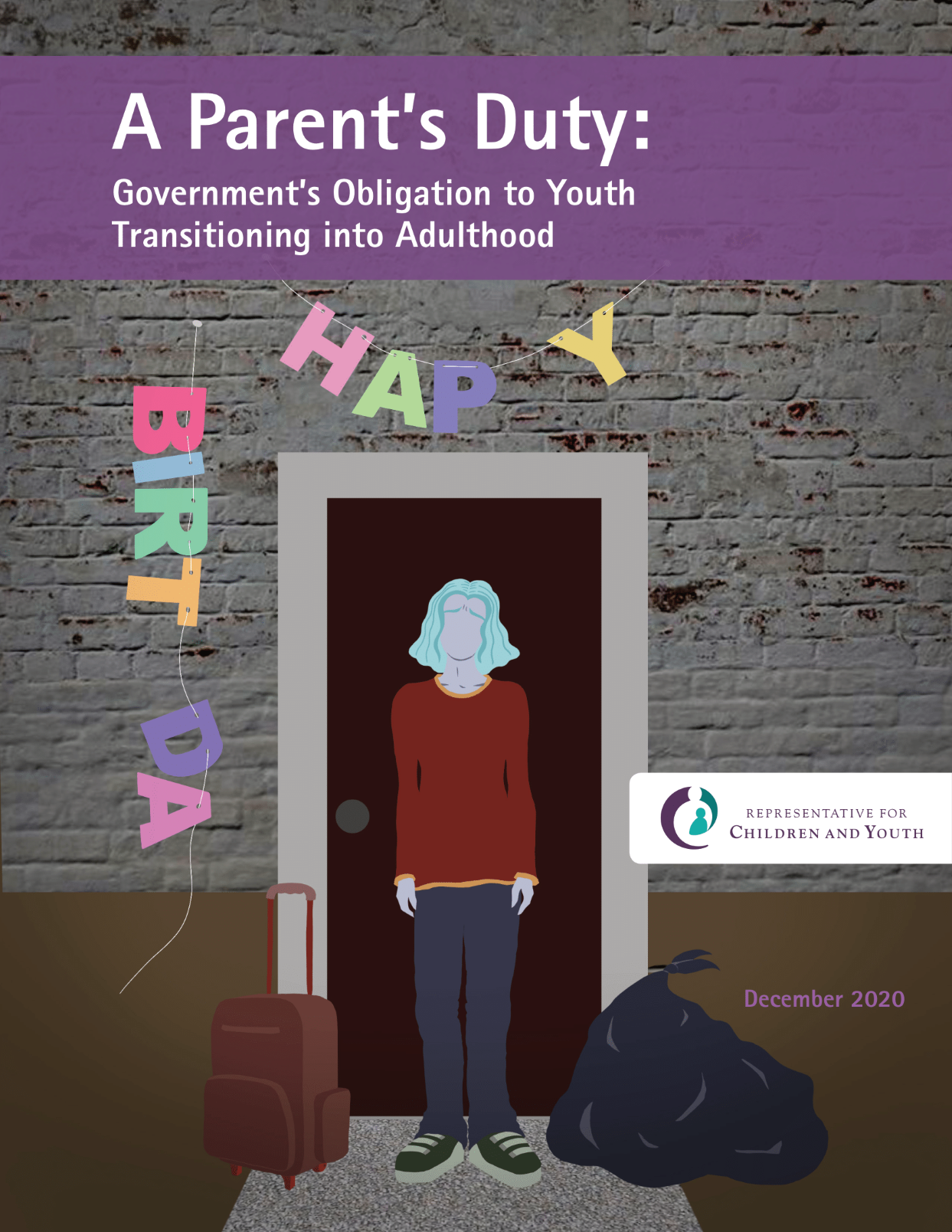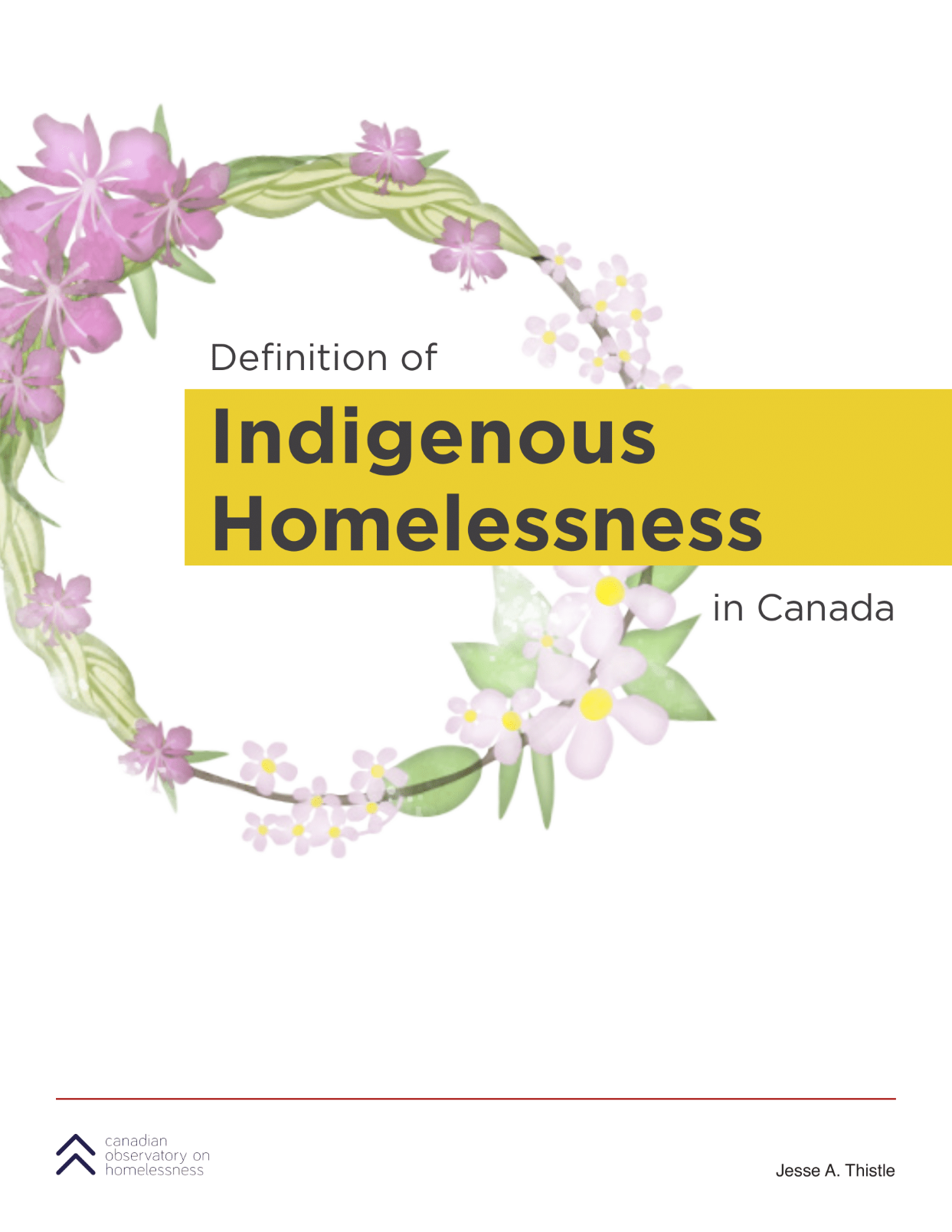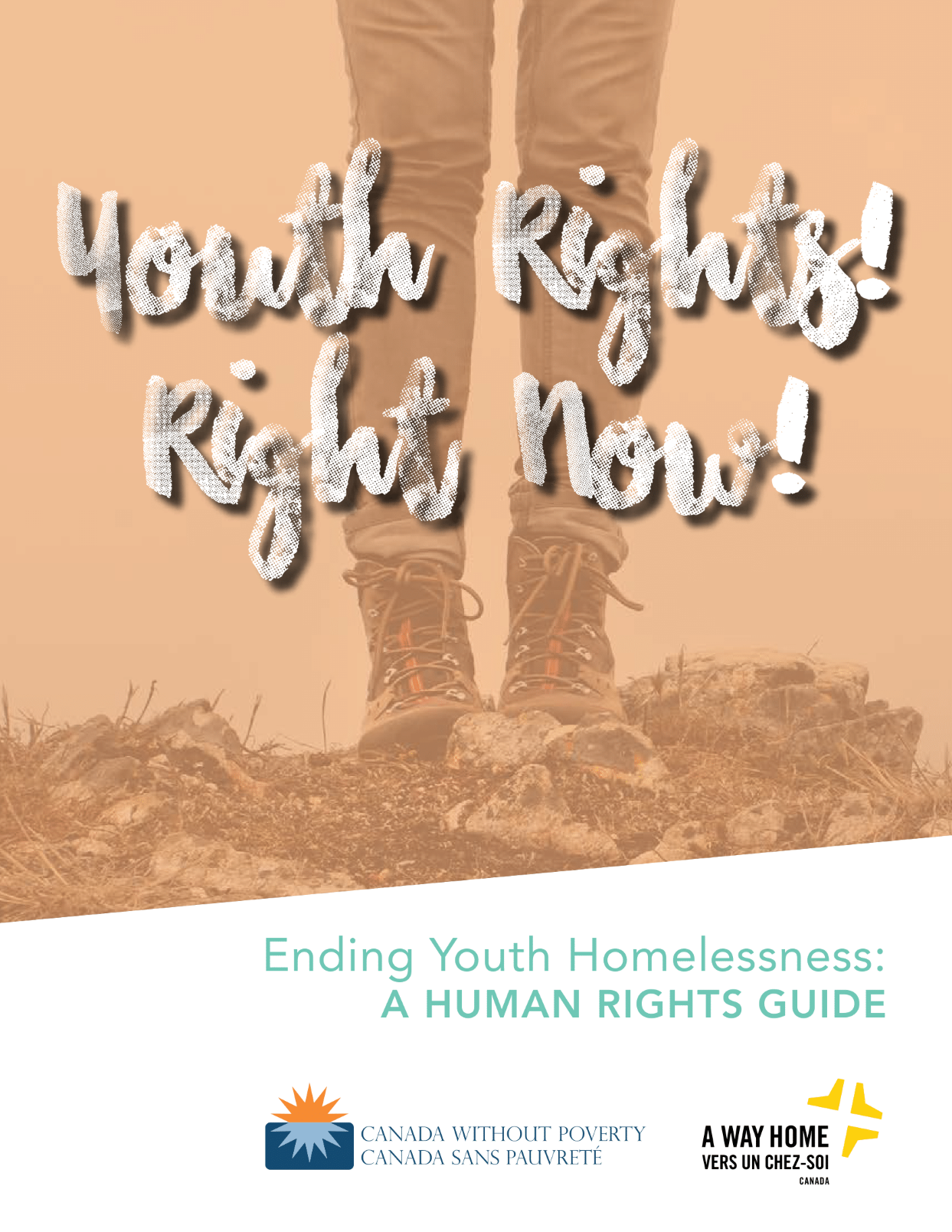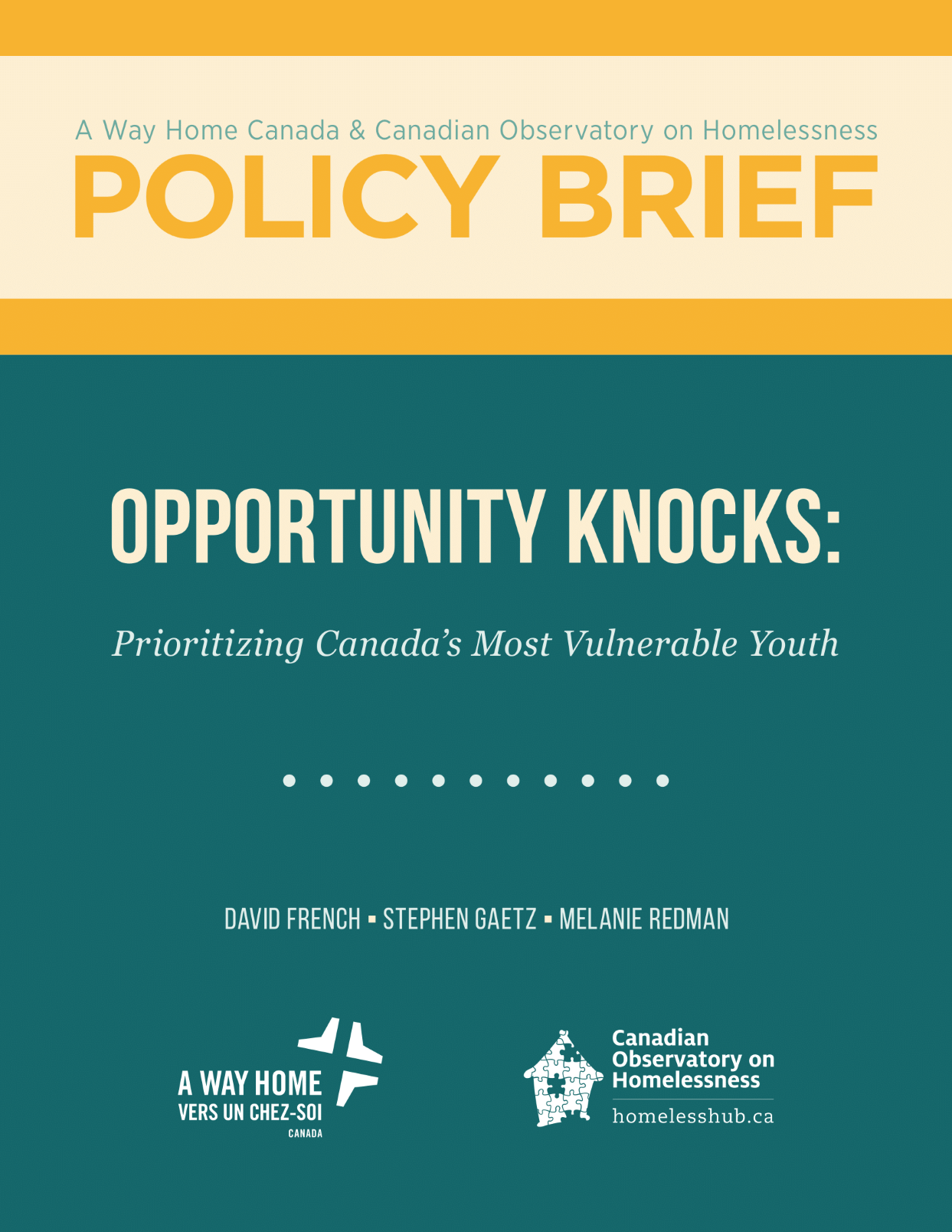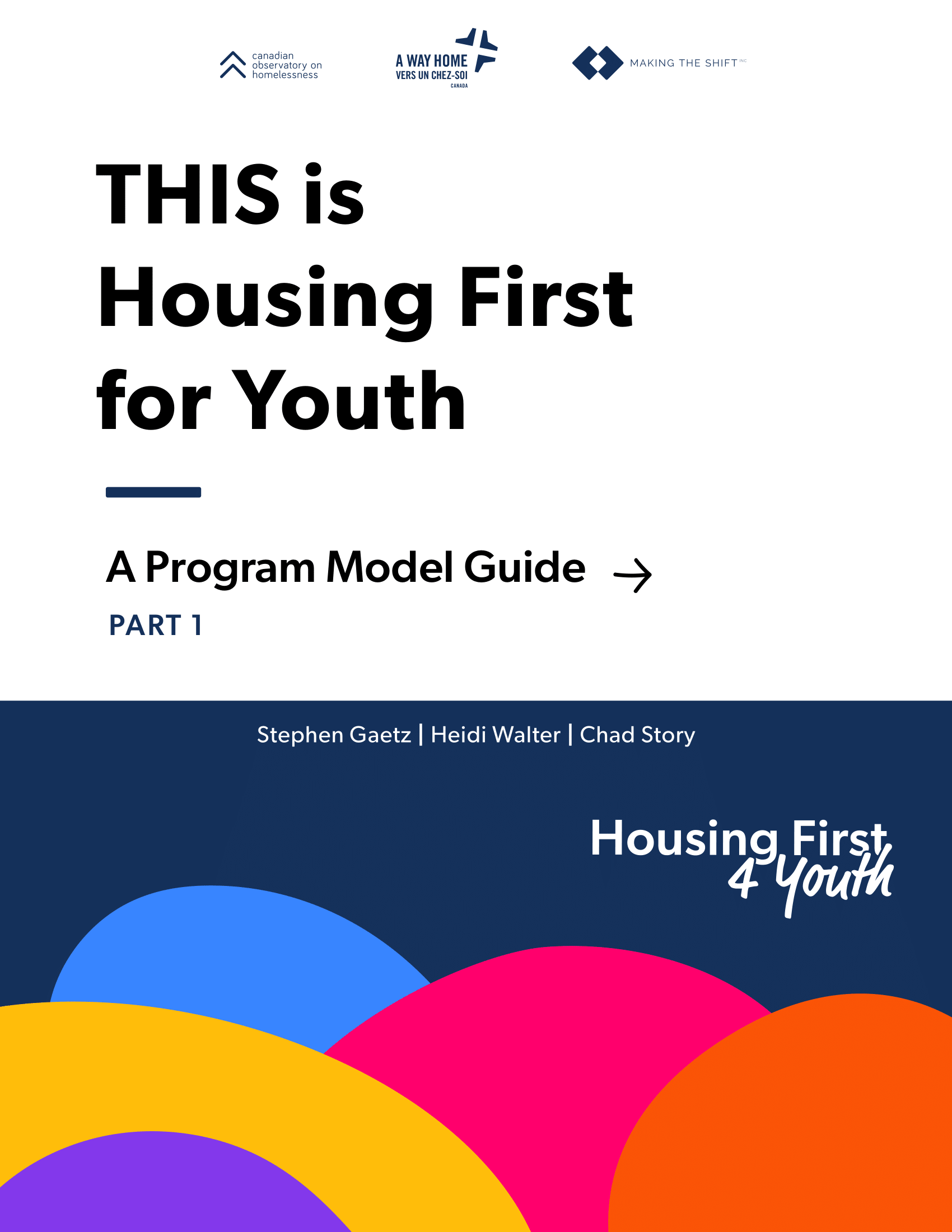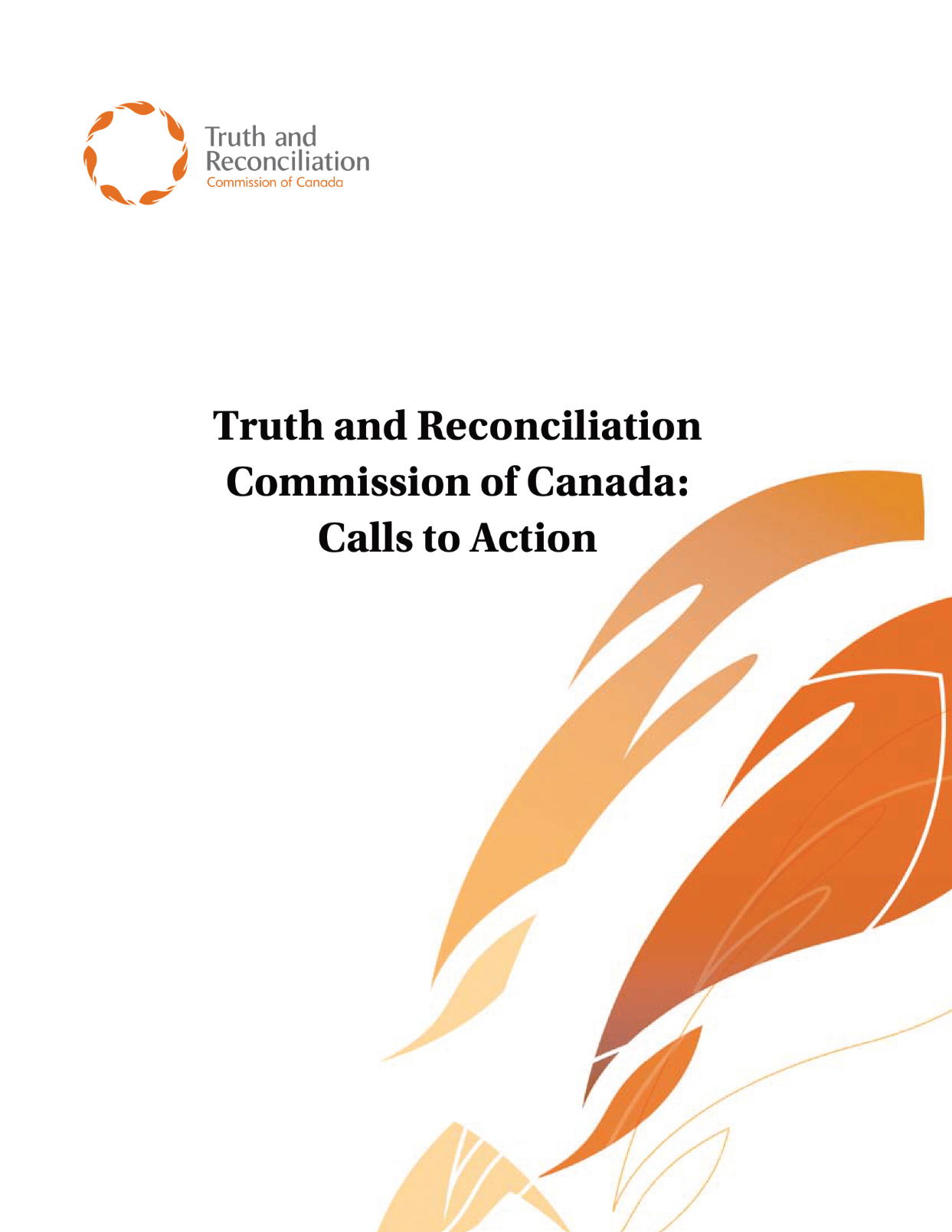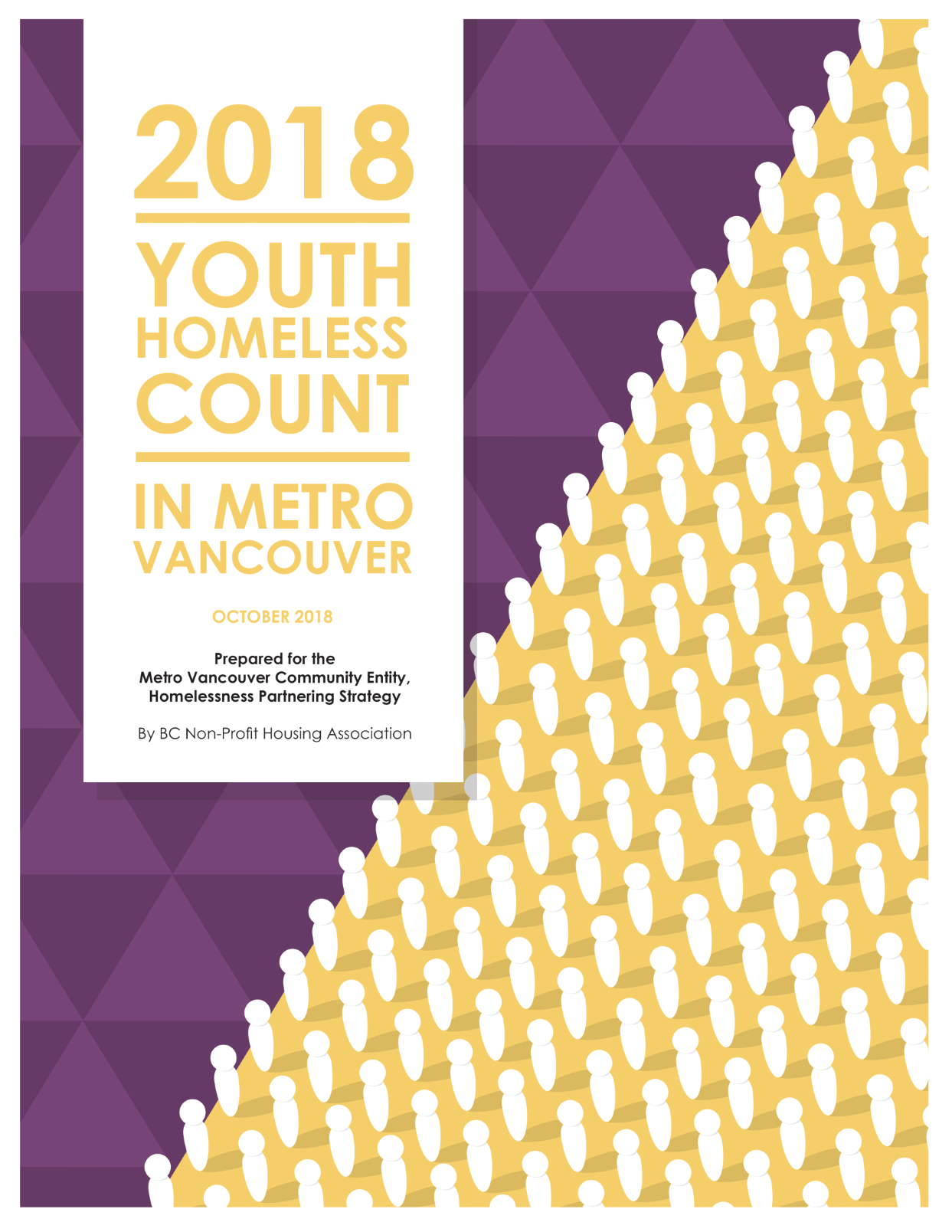Zero Ceiling’s programs are informed by best practices and current research on ending youth homelessness. Our culture of self-reflection helps us continually evolve and adapt to achieve our mission of ending youth homelessness. On this page, you can find research about Zero Ceiling’s programs. You can also find additional research and reports that inform our practice and programs.
Research about Zero Ceiling
Since 2017, our research partnership with Royal Roads University has driven our program development. The research team have centred the voices of young adults in our programs. By understanding their experiences and perspectives, we create innovative and effective programs that empower young adults facing homelessness.
Zero Ceiling Work 2 Live Research Project January – December 2023: Annual Research Report
Jo Axe, Elizabeth Childs, & Kathleen Manion (2024)
In our final research, conducted in collaboration with Royal Roads University, highlights significant positive outcomes.
First, the Zero Ceiling Work 2 Live program has proven highly effective in fostering supportive employment environments. Employers have shown increased engagement and a commitment to creating more supportive workplaces, enhanced by training programs like Mental Health First Aid and Supportive Employer training.
Second, program participants exhibited notable personal growth and increased stability, benefiting from the comprehensive support system that includes stable housing, employment, and life skills development.
These findings underscore the program’s success in empowering youth and facilitating their transition to independence.
Zero Ceiling Work 2 Live Research Project April 2022 – March 2023: Annual Research Report
Jo Axe, Elizabeth Childs, & Kathleen Manion (2023)
Our research partnership with Royal Roads University continued throughout 2022 and the start of 2023, culminating in this report. This is the second of three phases in a study that looks at how “the expansion of the ZC Work 2 Live model will allow for a deep understanding of what is required to youth and supportive employment partners in a sustainable manner.”
This year more than ever, the research is clear: well-supported people do well.
Zero Ceiling uses these findings to inform programming and operations. Our third and final year or study is already underway. Stay tuned to read that report in spring 2024!
Zero Ceiling Work 2 Live Research Project May 2021 – March 2022: Annual Research Report
Jo Axe, Elizabeth Childs, & Kathleen Manion (2022)
In 2021, we began a three-year research project in partnership with Royal Roads University investigating how we can support our participants and employment partners to provide effective supportive employment opportunities. This report explores what we learned in the first year of that project, from the perspective of participants, employers, staff, and community partners.
The report explores the benefits of providing supportive employment in communities like Whistler, the challenges faced by participants and employers, and the supports that non-profits like Zero Ceiling can provide to foster success. The recommendations from this report will inform the next two years of this project as we refine and strengthen our supportive employment programs.
Zero Ceiling: An exploration of young people’s experiences of homelessness and the Work Live Program (2020)
“They do care and they let you know that they do care about you. I needed people around in my life that really cared about that what I was doing was important.” Zero Ceiling Graduate interviewed for this report.
The latest research focused on participant experiences before, during, and after the Work 2 Live program. The research team carried out interviews with program participants, graduates, staff, employers, and Board members. Researchers identified common themes related to participant life experiences, needs, and successes. The report centres the voices and experiences of young people who have experienced homelessness, telling us what they need.
In addition, they explore the context of the Work 2 Live program within Whistler. They identified new opportunities, program successes, and vulnerabilities. This resulted in 16 recommendations to improve the program and outcomes for youth. We have been working towards implementing these recommendations, leading to significant improvements in the support we provide to young adults.
In search of Employment: Tackling Youth Homelessness and Unemployment
Jo Axe, Elizabeth Childs, & Kathleen Manion (2020)
The latest research from Royal Roads University, published in Children and Youth Services Review, explores what makes a successful supportive employment program. The findings focus on the experience of our participants and the effectiveness of partnerships with local businesses.
Highlights
- Employment is an important, yet sometimes overlooked, aspect of assisting vulnerable youth in moving to independence.
- Understanding the multiple perspectives of the avenues into, and out of, homelessness for young people helps ground effective supported employment programs.
- Strong resilient partnerships that bridge across employment, housing, and support provide a better foundation for programs that can foster participant success and reciprocal success for the community and workplaces they live and work in.
Why Not Whistler? A Ski Town’s 22‑Year Journey to Combat Youth Homelessness
Jill Patrick (2019)
We were proud to be included in the October 2019 edition of Parity Magazine – Australia’s national homelessness publication. Their October 2019 edition focused on innovative Canadian efforts to end youth homelessness. It showcases a range of solutions to help move from crisis response to the prevention of youth homelessness.
This piece by our writer, Jill Patrick, explores how Zero Ceiling’s unique location in Whistler affects our programs and their impact on youth. It considers how lessons we have learned could be valuable to other communities tackling homelessness. Read the full report on page 68.
Work 2 Live: A Multi-year Qualitative Study – Year One
Jo Axe, Elizabeth Childs, & Kathleen Manion (2018)
In 2018, Royal Roads University carried out a comprehensive review of our Work 2 Live supportive housing and employment program. Their report released in September 2019, explores the impact of the program on participants’ lives, and identifies future directions for Work 2 Live.
Read the full report from Drs. Jo Axe, Elizabeth Childs, and Kathleen Manion to learn more.
Zero Ceiling Program Review
Jo Axe, Elizabeth Childs, & Kathleen Manion (2017)
This initial program review focused on understanding the components of the Work 2 Live program and outcomes for participants. Researchers identified strengths of the program and areas for growth. The research team concluded that:
“Zero Ceiling and the Work 2 Live program have been very successful in positively impacting the lives of the program participants. While there is some room for improvement, the organization and the program are very effectively fulfilling its goal to reduce youth homelessness and raise the quality of life for young people from Vancouver through the Sea to Sky corridor.”
COVID-19 Adaptation and Recovery in Whistler: Employer and Employee Experiences
Jo Axe & Rebecca Wilson-Mah (2021)
For over 20 years, we have worked with Whistler businesses to provide supportive employment for young Canadians. And since 2017, we have partnered with Royal Roads University to understand the impact of our programs for young people and employers.
In the summer of 2020, Professor Jo Axe and Assistant Professor Rebecca Wilson-Mah carried out focus groups with employers and employees in Whistler to explore what our businesses needed. What challenges were they facing with hiring and re-hiring staff? What were their concerns about staff returning to work? What training did they and their staff need to safely reopen their businesses?
This report presents what they learned. It identifies specific training needs across different sectors in Whistler. It explores how other similar communities have recovered from previous disasters. And it offers a model for how we can move forward towards recovery as a community.
Related Research
There is a wealth of research from Canada and internationally that informs our practice. These publications are examples of best practices in tackling youth homelessness and supporting young adults have to have a healthy transition to adulthood.


